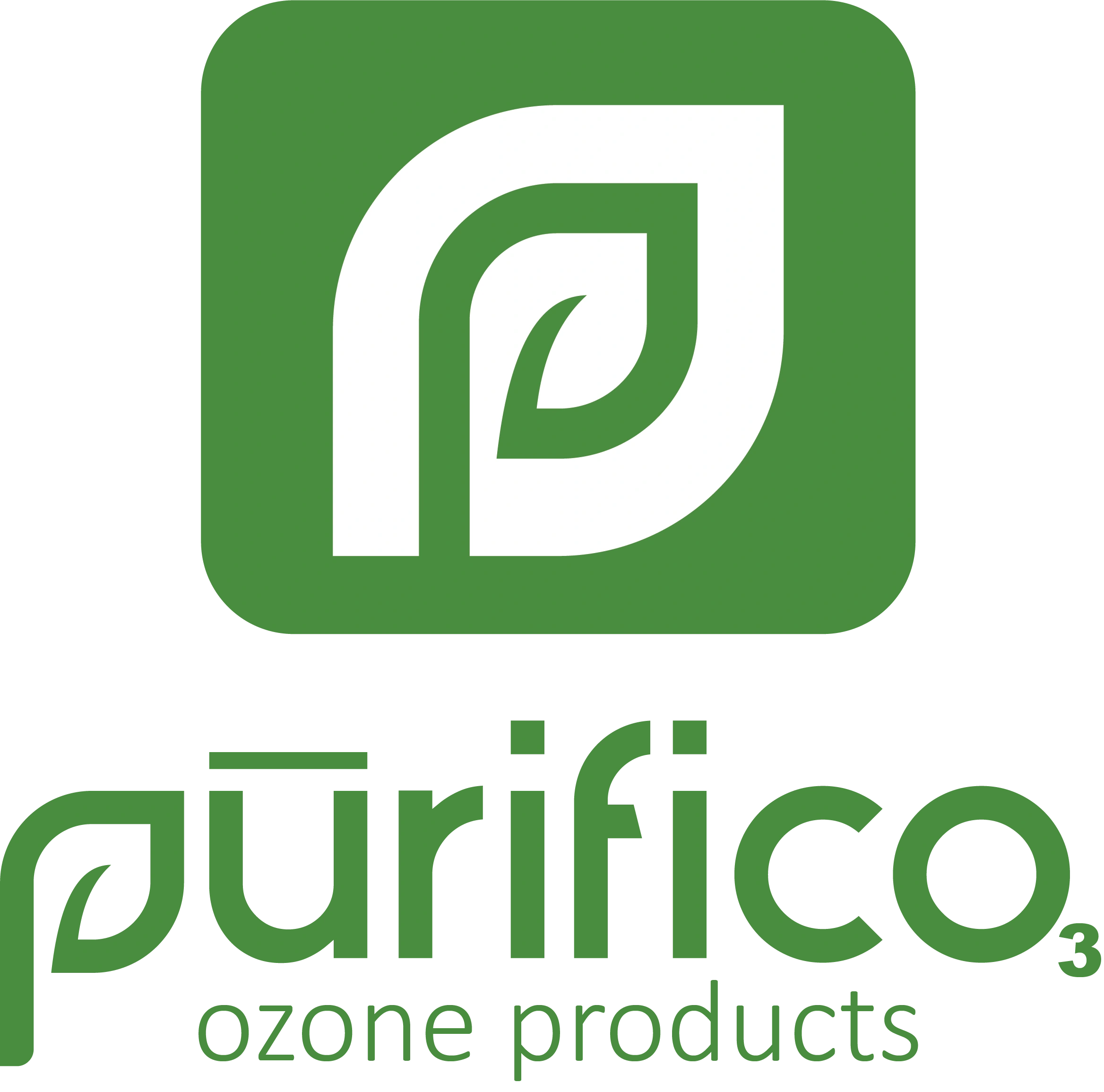Commercial water treatment is essential for various industries, including food and beverage production, wastewater treatment, car washes, and municipal water. Traditional methods often rely on chemical disinfectants like chlorine, which have drawbacks such as lower efficacy, harmful by-products and various operational challenges.
Ozone has emerged as a powerful alternative, offering numerous advantages that make it the preferred choice for many applications. Here are ten key benefits of using ozone in commercial water treatment.
1. Superior Disinfection Power
Ozone is one of the most potent oxidants available, with an oxidation potential of 2.07 volts. This makes it highly effective at killing a wide range of pathogens, including bacteria, viruses, fungi, and protozoa. Unlike chlorine, which can struggle with chlorine-resistant organisms like Cryptosporidium and Giardia, ozone’s powerful oxidation disrupts the cellular structures of microorganisms, leading to their rapid inactivation. Additionally, microbes cannot develop resistance to ozone, ensuring consistent efficacy over time.
This broad-spectrum efficacy makes ozone ideal for industries where water safety is paramount, such as in bottled water production and food processing.
2. Eliminates Chemical Residues
One of the significant advantages of ozone over traditional chemical disinfectants is that it breaks down into oxygen, leaving no harmful residues behind.
This is particularly important in applications like aquaculture and agriculture, where chemical residues can harm plants, animals, and soil health. Ozone’s ability to disinfect without leaving behind toxic by-products allows for safer water reuse and supports environmentally sustainable practices.
3. Improves Water Clarity and Quality
Ozone not only disinfects but also enhances water clarity and quality by oxidizing and removing contaminants such as iron, manganese, and sulfur. It also breaks down any organic materials that cause unpleasant tastes, odors, and discoloration in water.
This dual action of disinfection and purification makes ozone particularly valuable in industries where water aesthetics and quality directly impact operations, such as in potable water treatment or recreational pond and lakes.
4. Reduces Chemical Usage and Costs
By using ozone, businesses can significantly reduce their reliance on traditional chemical disinfectants and associated costs. Ozone is generated on-site, eliminating the need for purchasing, storing, and handling large quantities of chemicals. The low power consumption makes ozone a cost-saving technology over the long-term.
This not only cuts down on operational expenses but also reduces the environmental impact associated with chemical production, transportation, and disposal. The cost savings fromreduced maintenance andchemical usage can be substantial, making ozone a cost-effective solution for commercial water treatment.
5. Environmentally Friendly
Ozone is a green technology that supports environmental sustainability. It is generated from oxygen and reverts back to oxygen after use, leaving no harmful by-products.
This clean breakdown makes ozone one of the most environmentally friendly disinfectants available, reducing the ecological footprint of commercial water treatment processes. By choosing ozone, businesses can align their operations with environmental regulations and consumer demands for sustainable practices.
6. Improves Operational Efficiency
Ozone’s rapid disinfection capabilities enable continuous and efficient water treatment processes. Unlike UV treatment, which requires clear water to be effective, or chlorine, which demands precise dosing and mixing, ozone performs efficiently even in turbid conditions. With reaction rates approximately 3,000 times faster than chlorine, ozone is highly effective in high-flow applications, providing robust and reliable treatment.
This flexibility makes ozone systems easier to integrate into existing operations without extensive modifications. For industries like car washes, where large volumes of water need to be treated quickly and efficiently, ozone offers a streamlined solution that enhances overall operational efficiency.
7. Enhanced Safety and Reduced Handling Risks
Since ozone is generated on-site using ozone generators, it eliminates the risks associated with transporting, storing, and handling hazardous chemicals. This significantly improves workplace safety, as operators do not need to manage corrosive or dangerous substances that pose health risks.
By reducing chemical handling, ozone systems simplify compliance with safety regulations and reduce the potential for accidents in commercial water treatment facilities.
8. Scalable and Customizable Solutions
Ozone systems are highly scalable and can be tailored to meet the specific needs of various industries and water treatment applications. Whether it’s a small-scale operation or a large industrial facility, ozone generators can be configured to provide the required output, ensuring optimal performance.
This scalability makes ozone suitable for diverse applications, from small community water systems to large-scale aquaculture operations, where water quality and safety are critical.
9. Reduced Regulatory Burden
Many regulatory bodies, including the U.S. Environmental Protection Agency (EPA), recognize ozone as a safe and effective disinfectant for water treatment. Ozone’s ability to provide thorough disinfection without harmful residues simplifies regulatory compliance and reduces the burden of managing disinfection by-products.
For industries like bottled water and food processing, where strict water quality standards are enforced, ozone offers a reliable method to meet and exceed regulatory requirements without complex management of chemical contaminants.
10. Supports Water Reuse and Conservation
Ozone’s effective disinfection and oxidation capabilities make it ideal for water recycling and reuse applications. By breaking down contaminants and pathogens, ozone-treated water can be safely reused in various processes, reducing overall water consumption.
This is particularly beneficial in water-intensive industries like agriculture, car washes, and cooling towers, where water conservation is both an environmental and economic priority. The ability to recycle water without the risk of chemical buildup supports sustainable water management and helps businesses reduce their overall water footprint.
Conclusion
Ozone offers a multitude of benefits for commercial water treatment, making it a superior choice over traditional disinfection methods. Its powerful oxidative properties, ability to leave no harmful residues, and environmental friendliness make it an attractive option for businesses looking to improve water quality, reduce costs, and enhance operational efficiency.
As industries continue to seek sustainable and effective water treatment solutions, ozone stands out as a versatile and reliable technology that meets the demands of modern water management. By integrating ozone into their operations, businesses can achieve safer, cleaner, and more sustainable water treatment outcomes.


